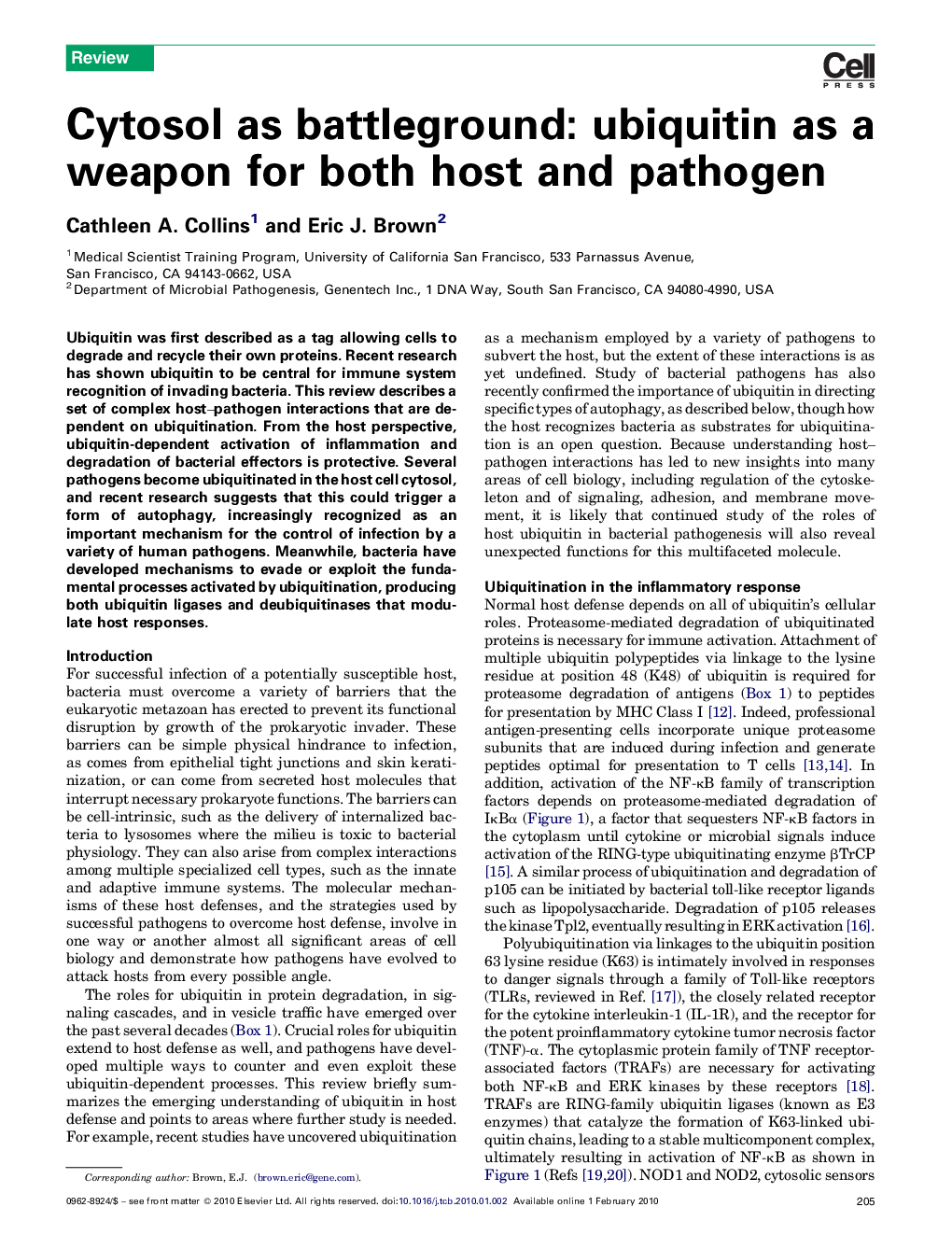| Article ID | Journal | Published Year | Pages | File Type |
|---|---|---|---|---|
| 2204883 | Trends in Cell Biology | 2010 | 9 Pages |
Ubiquitin was first described as a tag allowing cells to degrade and recycle their own proteins. Recent research has shown ubiquitin to be central for immune system recognition of invading bacteria. This review describes a set of complex host–pathogen interactions that are dependent on ubiquitination. From the host perspective, ubiquitin-dependent activation of inflammation and degradation of bacterial effectors is protective. Several pathogens become ubiquitinated in the host cell cytosol, and recent research suggests that this could trigger a form of autophagy, increasingly recognized as an important mechanism for the control of infection by a variety of human pathogens. Meanwhile, bacteria have developed mechanisms to evade or exploit the fundamental processes activated by ubiquitination, producing both ubiquitin ligases and deubiquitinases that modulate host responses.
